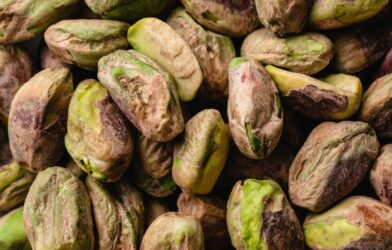Your daily soft drink might be doing more than just satisfying a craving. That sweet sip could actually alter the very DNA of the bacteria living in your gut, leading to changes that impact your body’s ability to fight off illness or even regulate inflammation. It sounds like something from a cutting-edge lab, but new research suggests that our innocent indulgence in sugary beverages might be doing exactly that, with surprising and reversible effects on our immune system.
For years, we’ve known about the “gut microbiome” – the vast community of bacteria and other microbes that call our intestines home. These microscopic residents are essential partners in our health, playing crucial roles in everything from digestion to the development of our immune system. The challenge is that our modern lifestyles, especially our diets, are constantly changing this delicate ecosystem. To keep up, our gut bacteria must adapt quickly. This flexibility, known as “functional plasticity,” allows them to change their behavior and functions in response to factors like what we eat, our health status, and other nearby microbes.
A recent study published in Nature Communications by a team from the Technion-Israel Institute of Technology, led by Prof. Naama Geva-Zatorsky and Ph.D. student Noa Gal-Mandelbaum, unveils a striking way a common dietary component – white sugar, often found in soft drinks – can rapidly induce these changes. Their findings indicate that consuming white sugar can trigger “DNA inversions” in a key gut bacterium,
Bacteroides thetaiotaomicron (B. theta), and these genetic shifts are linked to alterations in our immune responses. Perhaps the most compelling part is that these effects are not permanent. Stop the sugar, and your gut bacteria, and potentially your immune system, can revert to their original state. This discovery highlights a dynamic relationship between diet and gut health that we can actively influence.
Gut Bacteria’s Clever Adaptations: What Are DNA Inversions?
To truly grasp this discovery, it helps to understand how gut bacteria adapt. One clever method they use involves “DNA inversions”. This is like a molecular switch within the bacteria’s genetic code, where sections of DNA flip their orientation. This flip can change which genes are active, allowing the bacteria to quickly adjust their functions to new environmental conditions. This is particularly important for bacteria like
B. theta, a major resident in our gut, known for its role in preventing gut inflammation, maintaining the protective mucus layer, and guarding against harmful microbes. Its ability to quickly adapt its functions is key to its survival and our health.
Researchers had previously observed that B. theta could modify its functions through DNA inversions, but the exact triggers for these genetic rearrangements, especially those related to diet, remained largely unknown. This new study aimed to answer that question, investigating how different dietary factors, particularly sugars, might influence these bacterial DNA switches. The team used a combination of human observations, controlled experiments in mice, and laboratory studies to build a comprehensive picture.
Sugar’s Direct Impact: Insights from Mice and Lab Studies
To establish a clearer cause-and-effect, the scientists turned to mice. They used “germ-free” mice – animals raised without any microbes in their guts – and then introduced only B. theta to some, creating a controlled environment to isolate the effects of diet on this specific bacterium.
These mice were divided into groups: some drank plain water, while others drank water supplemented with 9% white sugar. After just 12 days, the results were striking. In mice that consumed sugar water, the PVR2 region of B. theta‘s DNA showed a significantly higher reverse orientation – the same genetic flip observed in humans who consumed soft drinks. This change was detectable within seven days of sugar consumption.
The impact wasn’t limited to the bacteria’s DNA. The sugar-induced genetic changes in B. theta correlated with noticeable alterations in the mice’s immune systems. Researchers observed changes in specific immune cell populations and found that important immune markers were affected in the sugar-water-drinking mice with B. theta. This points to the sugar-driven DNA inversions in
The Reversible Effect: A Promising Discovery
One of the most compelling aspects of this study is its demonstration of reversibility. The researchers took mice that had been drinking sugar water, causing the DNA inversions in B. theta and the associated immune changes. Then, after seven days, they switched these mice back to drinking plain water.
The results were noteworthy: the elevated DNA inversions in B. theta declined significantly after the sugar water was removed. Crucially, the changes in immune cell populations and immune markers also returned to normal levels. This illustrates that our gut bacteria, and the immune responses they influence, possess a remarkable adaptability – they can adjust to changes and then, just as quickly, revert to their previous state when the dietary stimulus is removed.
This research highlights the profound importance of studying how nutrition affects our gut microbiome and, by extension, our overall health. The scientists believe this understanding will allow for “tailored dietary recommendations” designed to improve individual immune systems and general well-being. The food choices we make, even seemingly small ones like consuming a soft drink, have an immediate and tangible impact on the genetic programming of our gut bacteria and the functions of our immune system. The encouraging news is that this impact appears to be reversible, underscoring that our dietary habits are not just long-term investments in health, but ongoing, dynamic conversations with the trillions of microbes that live within us, offering continuous opportunities to recalibrate and optimize our well-being.
Paper Summary
Methodology
The study used human data, mouse experiments, and lab studies. Human gut bacteria genetic data was analyzed against self-reported diets. Germ-free mice were given B. theta and then sugar water or plain water; their immune cells and gene expression were monitored. A reversibility test involved switching sugar-fed mice back to plain water. Lab tests grew B. theta on various sugars to observe changes in bacterial proteins and their effects on immune cells.
Results
Diet, specifically soft drink consumption in humans and white sugar in mice, significantly altered DNA inversions in B. theta. These genetic changes were linked to shifts in mouse immune cell populations and the expression of immune markers. Importantly, these sugar-induced changes in both bacterial DNA and immune responses were shown to be reversible when sugar was removed from the diet.
Limitations
The human study relied on self-reported dietary information, which has limitations in precision. The mouse model was a simplified system using a single bacterial species in germ-free mice, which differs from the complex human gut microbiome. Additionally, sucrose’s primary breakdown in the small intestine means only small amounts may reach B. theta in the colon.
Funding/Disclosures
The research received funding from the Technion President’s Fund, RTICC, the Alon Fellowship, the Seerave Foundation, CIFAR, and the European Research Council (ERC). The authors stated no competing interests.
Publication Information
This research was conducted by a team from the Ruth and Bruce Rappaport Faculty of Medicine, Technion-Israel Institute of Technology, led by Prof. Naama Geva-Zatorsky and Ph.D. student Noa Gal-Mandelbaum. It was published in Nature Communications on May 28, 2025. The article is titled “Dietary carbohydrates alter immune-modulatory functionalities and DNA inversions in Bacteroides thetaiotaomicron” (DOI: 10.1038/s41467-025-60202-9).












